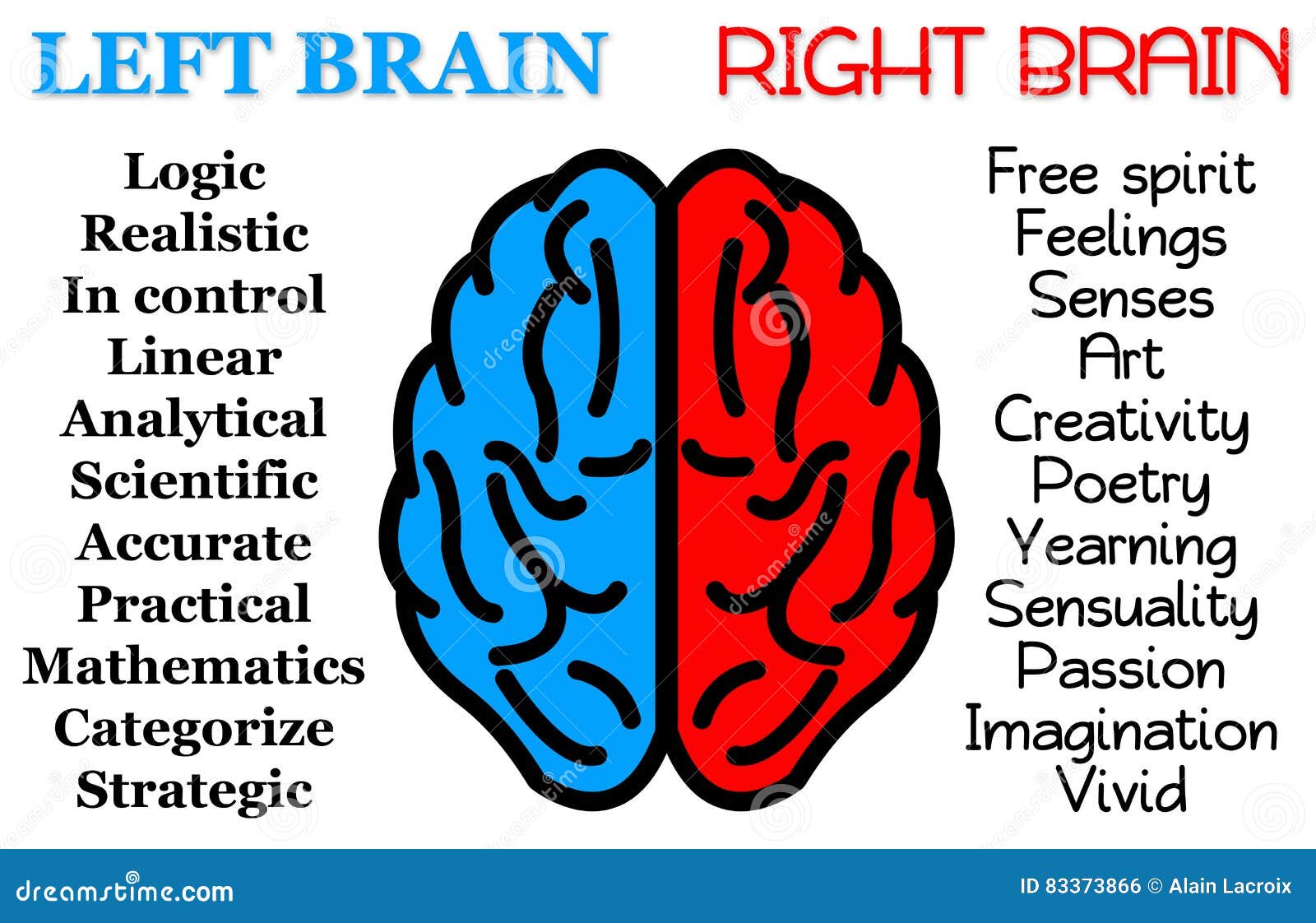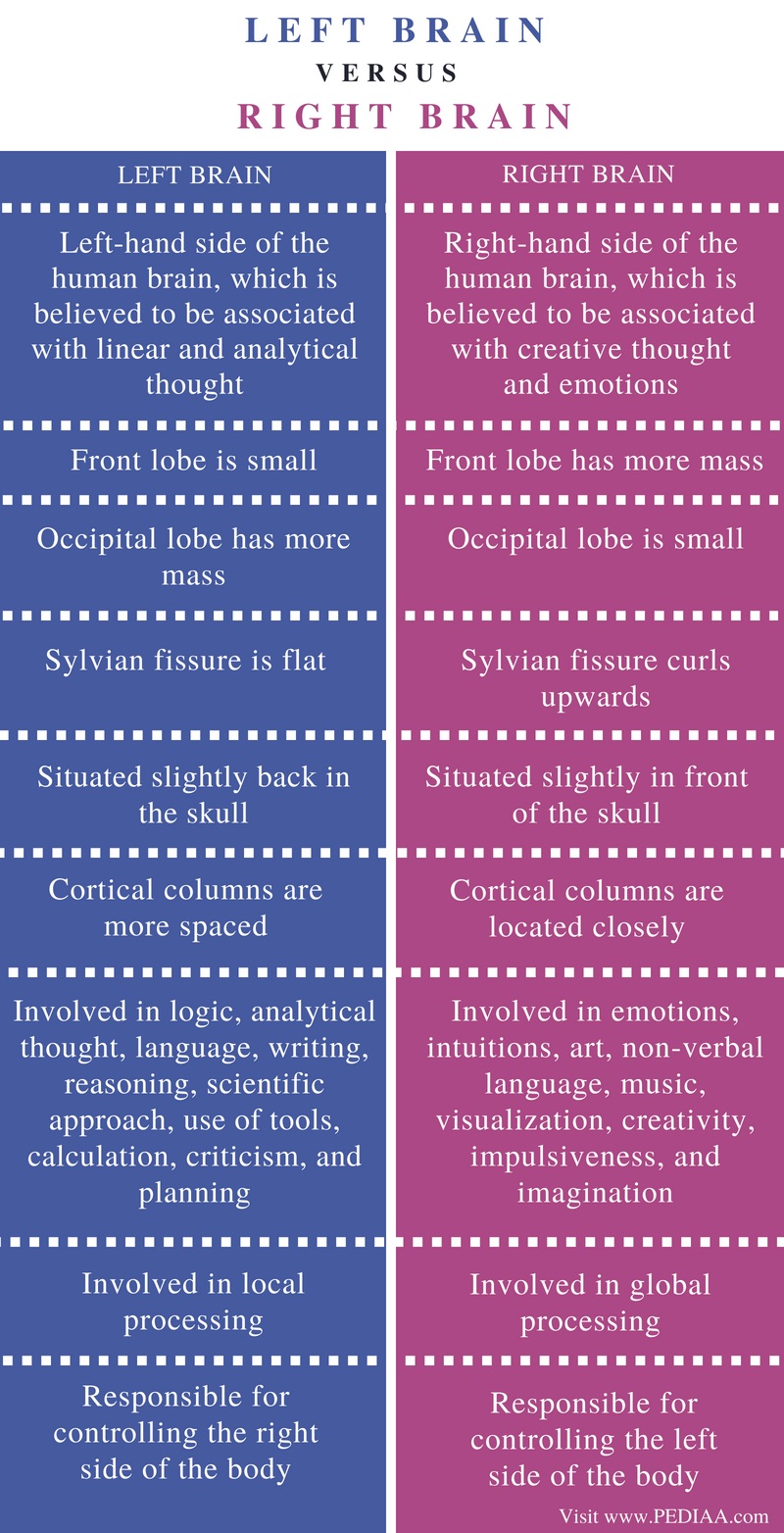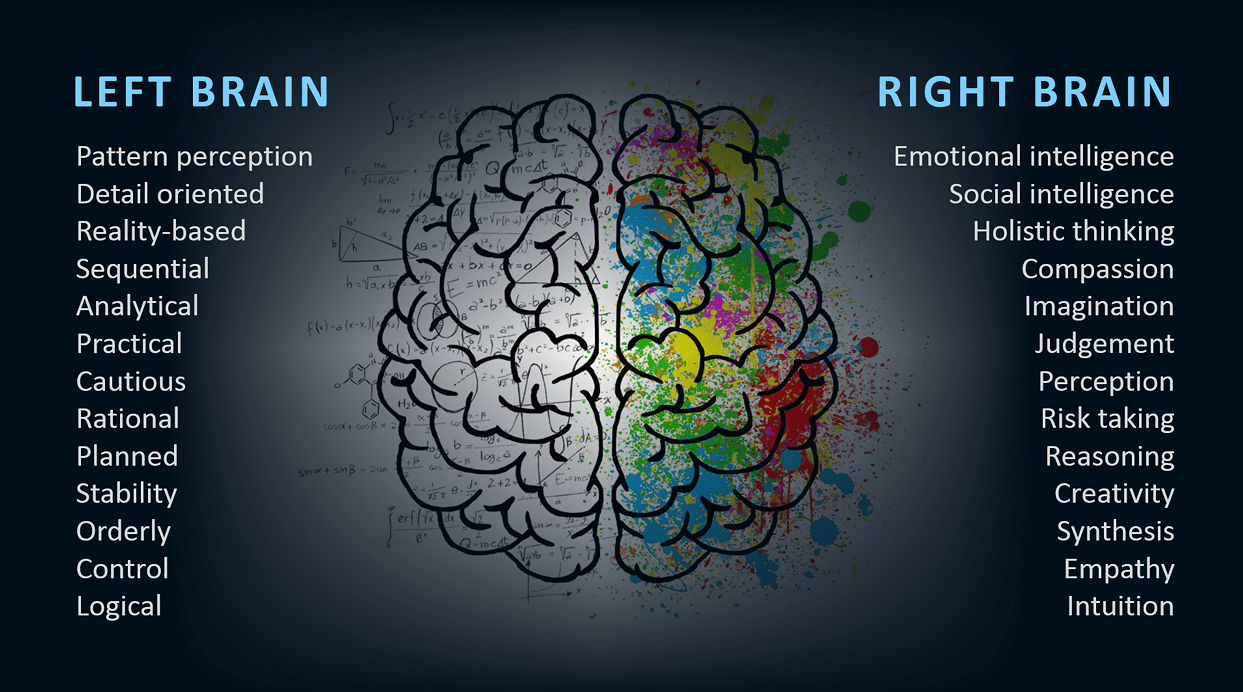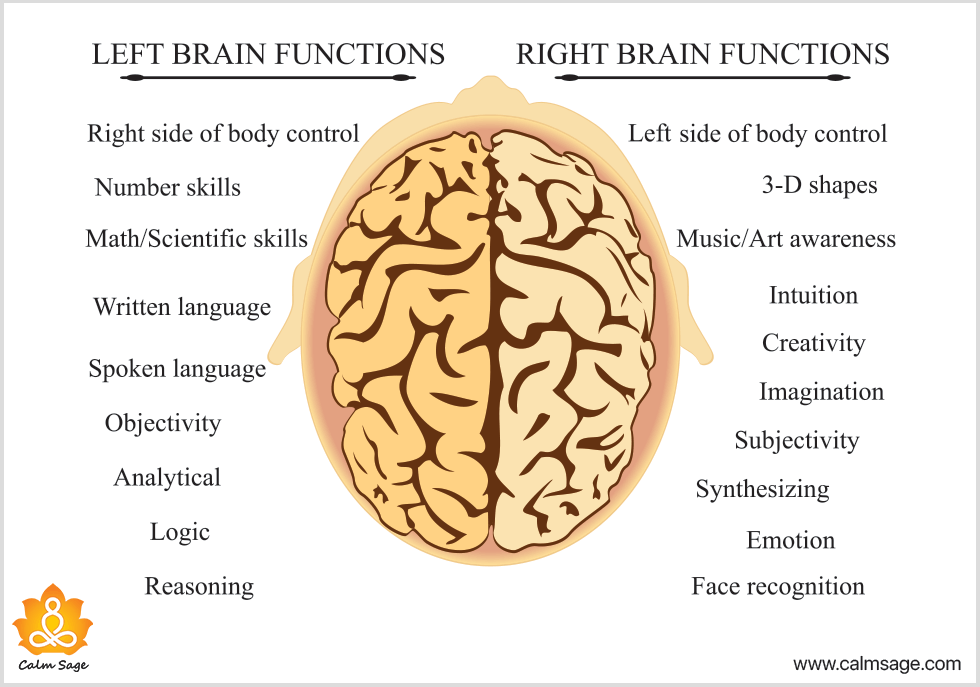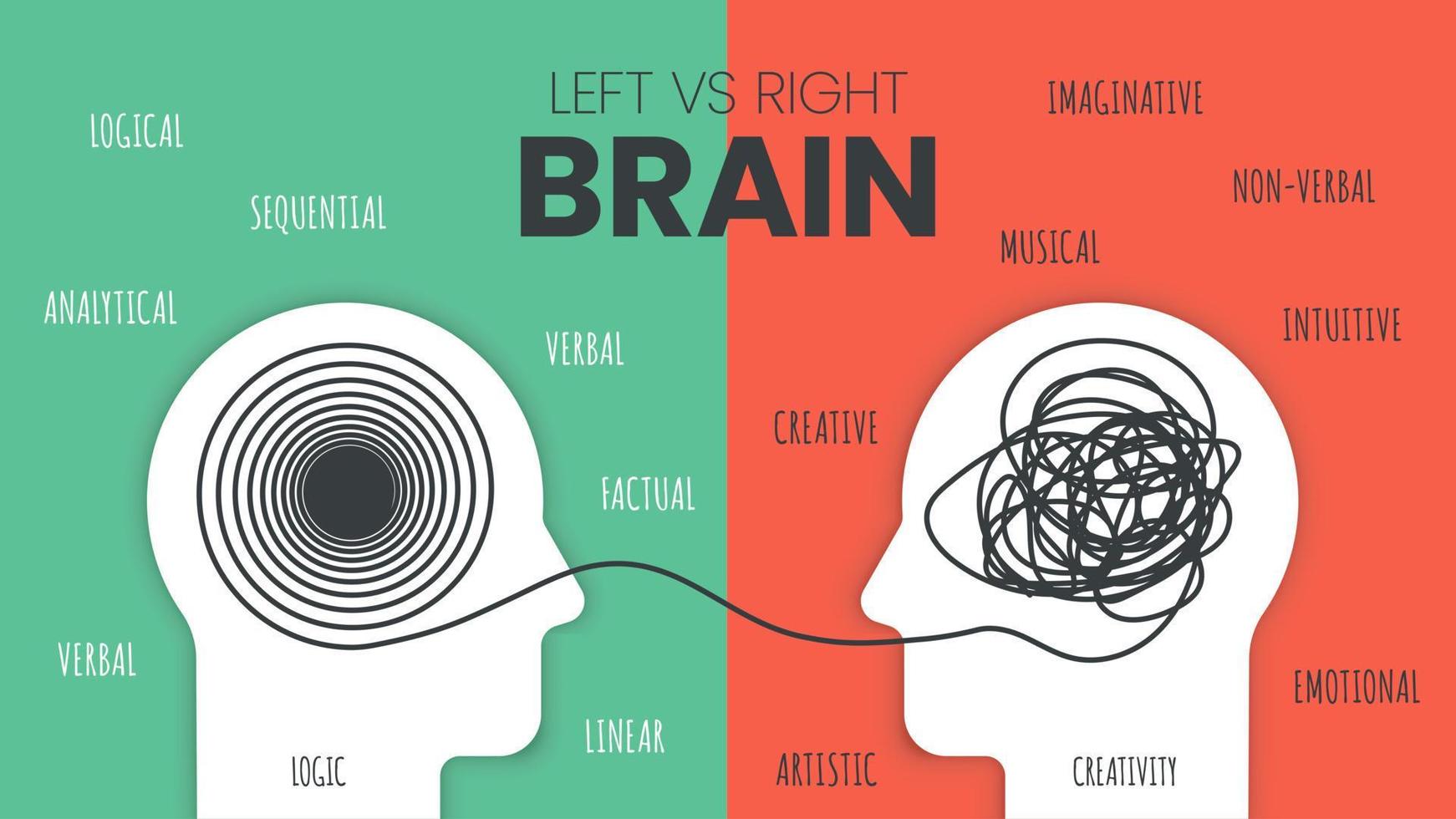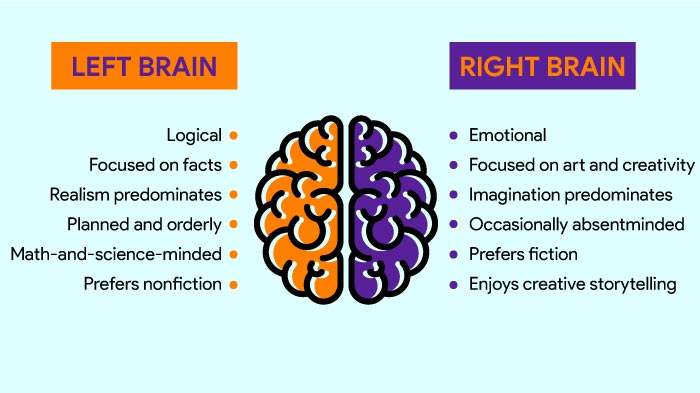What Is The Difference Between Left And Right Brain Thinking
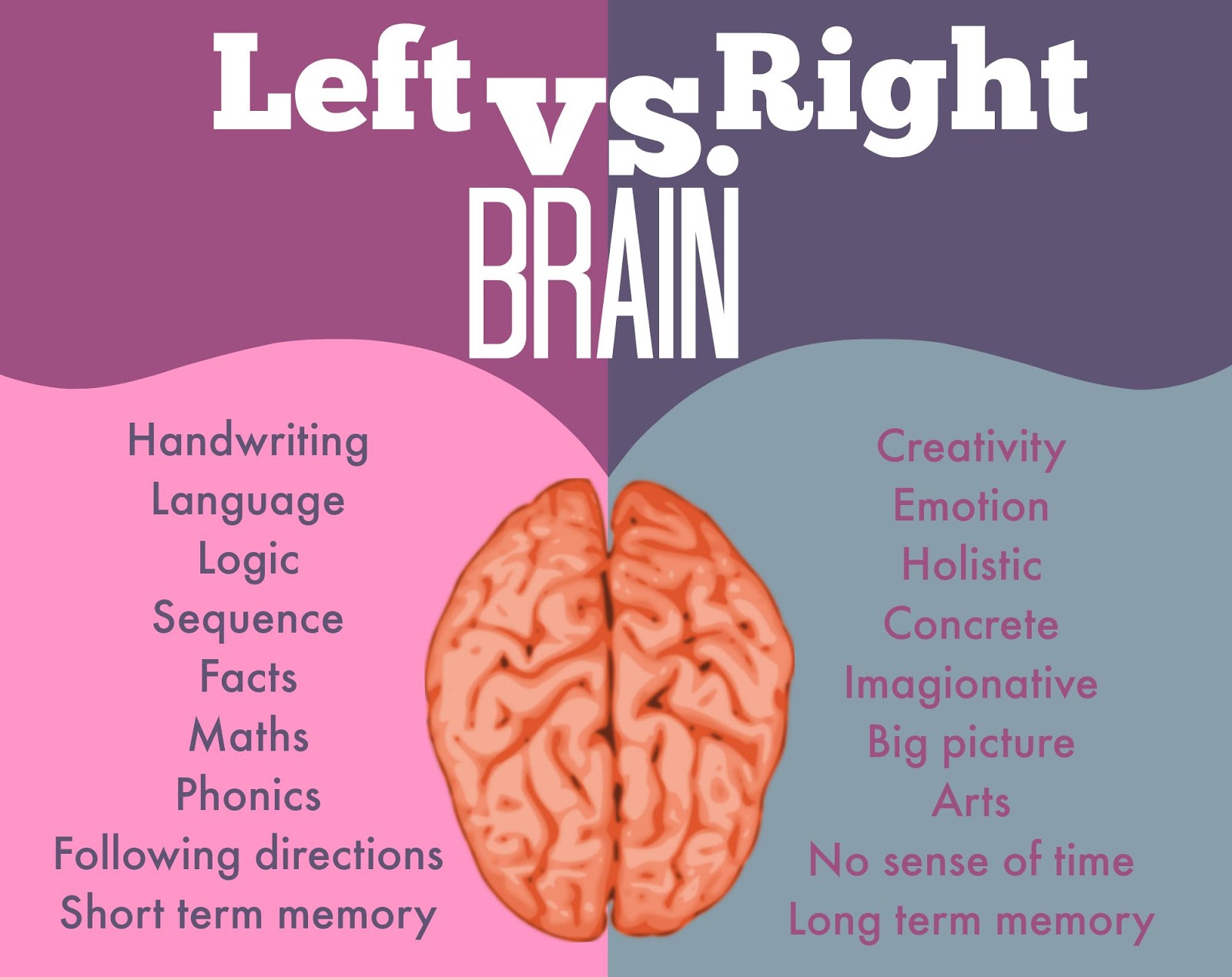
Imagine a painter, meticulously sketching a landscape, their left hand steady as they translate the scene onto canvas. Now picture a musician, lost in the melody, their right hand dancing across the piano keys, improvising a soulful tune. Are these creative differences simply a matter of artistic preference, or do they hint at something deeper, a fundamental difference in how our brains process information?
While the popular notion of a strict left brain versus right brain dominance has been largely debunked, understanding the nuanced specializations within our cerebral hemispheres can offer valuable insights into our cognitive strengths and learning styles. Let's dive into the fascinating world of brain lateralization and explore the real differences between left and right brain thinking.
The Myth of Dominance
For decades, the idea of being "left-brained" or "right-brained" has permeated popular culture. This concept, popularized by Nobel laureate Roger Sperry's split-brain research in the 1960s, suggested that the left hemisphere is responsible for logical, analytical, and sequential tasks, while the right hemisphere handles creativity, intuition, and holistic thinking.
However, modern neuroscience paints a more complex picture. While certain functions are indeed lateralized, meaning they are primarily processed in one hemisphere more than the other, the brain works as an integrated whole.
Both hemispheres constantly communicate and collaborate to enable us to think, feel, and act.
Lateralization: A Division of Labor
So, what are the actual differences between the left and right hemispheres? It's not about dominance, but rather a specialization of labor.
The left hemisphere is typically associated with language processing, including grammar and vocabulary. It excels at analytical thinking, breaking down complex problems into smaller, manageable parts.
It also plays a key role in sequencing, logical reasoning, and mathematical calculations.
The right hemisphere, on the other hand, is often linked to spatial reasoning, facial recognition, and emotional processing. It's adept at recognizing patterns, understanding nonverbal cues, and grasping the "big picture."
The right hemisphere also contributes to creativity, intuition, and artistic expression, allowing us to think outside the box and connect seemingly disparate ideas.
Examples in Action
Consider reading a novel. The left hemisphere helps you decode the words, understand the grammar, and follow the plot's logical progression.
Meanwhile, the right hemisphere allows you to visualize the scenes, empathize with the characters, and grasp the underlying themes and emotions.
Or, think about learning to play a musical instrument. The left hemisphere helps you understand the musical notation and memorize the scales.
The right hemisphere enables you to feel the rhythm, express emotions through music, and improvise melodies.
Beyond Dichotomy: A Collaborative Symphony
The most important takeaway is that the brain functions as a cohesive unit. Both hemispheres are constantly communicating and working together, allowing us to navigate the world effectively.
Dr. Jill Bolte Taylor, a neuroanatomist who experienced a stroke that temporarily shut down her left hemisphere, eloquently describes the profound sense of interconnectedness and expansive awareness she experienced when her right hemisphere took the lead. Her experience, detailed in her book "My Stroke of Insight," offers a unique perspective on the capabilities of the right brain.
Understanding the specialized functions of each hemisphere can help us appreciate the complexity and versatility of the human brain.
Implications for Learning and Growth
Recognizing these differences can inform our learning strategies. By understanding our cognitive strengths, we can tailor our learning methods to maximize our potential.
If you excel at logical reasoning and analytical thinking, you might benefit from structured learning environments and step-by-step instructions. If you are more visually oriented and creative, you might thrive in collaborative projects and open-ended assignments.
Ultimately, embracing both sides of our brain allows us to unlock our full potential, fostering a more balanced and holistic approach to learning, problem-solving, and creative expression.
Instead of trying to force ourselves into a "left-brained" or "right-brained" box, let's celebrate the unique symphony of skills and abilities that make us who we are. By understanding the nuances of brain lateralization, we can harness the power of both hemispheres to create, innovate, and thrive in a world that demands both logic and imagination.
:max_bytes(150000):strip_icc()/LeftvsRight-01-5a206273ec2f64003722380d.png)
